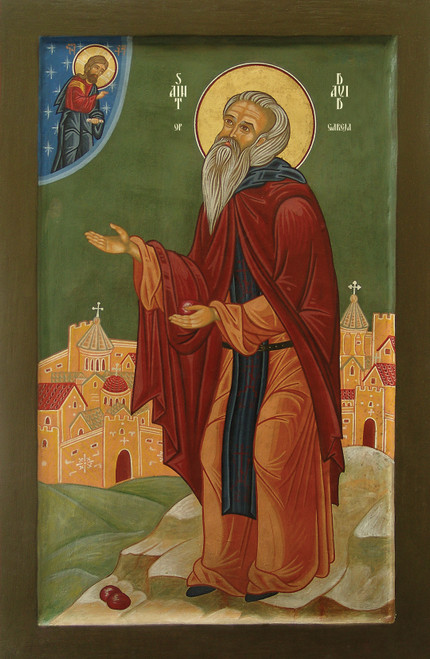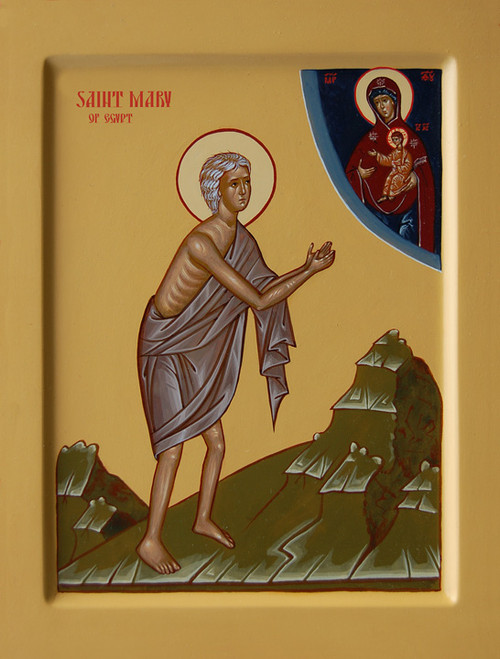St. David of Euboia (+1589)
Commemorated November 1
St. David was born at the beginning of the 16th century in the sea-side village of Gardinitza, opposite the island of Euboia. His father was a devout and virtuous priest. When David was no more than three years old, Saint John the Baptist appeared to him one night and took him to the nearby church which was dedicated to him. He remained standing there, barefoot, for six days, lost in the vision, in front of the icon of the Forerunner. Nourished from an early age on the principles of obedience to his parents, asceticism and ceaseless prayer, he left his family home at the age of fifteen, in search of a spiritual father. He found him in the person of the Hieromonk Akakios, who was well-known in the villages of the region for his virtuous life and powerful preaching.
David was tonsured a monk in Akakios’ monastery, and there demonstrated perfect obedience, accompanied with humility and unceasing prayer. Because his Elder wished to find a monastery more advanced in the spiritual life, David followed him first to Ossa, near Olympus, and then, after he had been ordained deacon, on a pilgrimage to the monasteries on the Holy Mountain. Akakios went on to Constantinople alone, leaving David in the Great Lavra. Akakios was consecrated Metropolitan of Arta and Nafpaktos by Patriarch Ieremias, and soon afterwards summoned David to his see to assist him with his pastoral duties.
Despite living in the hurly-burly of the world, David did not relax in the slightest his fasting, all-night-vigils, countless prostrations and complete obedience to his spiritual father. He soon became a priest and was appointed Abbot of the Monastery of the Mother of God, known as Varnakova, near Nafpaktos. But his zeal and spiritual demands were a cause of conflict with the lax monks there, who wanted nothing other than to do their own will. So he left the monastery and went to look for a place of tranquillity. He settled in a barren place on a mountain near Parnassos. While there he was attacked by a great many satanic temptations.
Charged with sheltering a runaway slave, he was arrested by the Turks and subjected to torture over a long period of time, before being freed through the payment of a ransom collected by the faithful living in the area. He then set off to find a new hermitage on the island of Euboia. There he rebuilt a small church in honour of the Transfiguration of the Saviour and it was not long before a group of disciples gathered who shared his way of life and love of prayer. In imitation of Christ, David showed boundless love towards all who came to him, especially the poor, upon whom he could not look without shedding tears.
He shared the monastery’s goods unstintingly with all those in need, deserving or not, Christian or Muslim. And so he spent many years radiating the presence of God with his virtues and many miracles. While he was travelling to mediate in the divisions among the bishops of the Peloponnese, his ship shank and David was saved by a miracle. Having been deemed worthy of the gift of precognition, he helped a great many people to find salvation and knew in advance the day of his death. He gathered his disciples and passed to them his final spiritual instructions. He departed this life at the moment when he had confided to those around him that Christ had just then appeared to him. After his demise 1589, a large number of miracles occurred at the saint’s grave.
More info can be found about St. David here.
From his scroll: "Having hated the things of the world, he fled the snares of the enemy."








